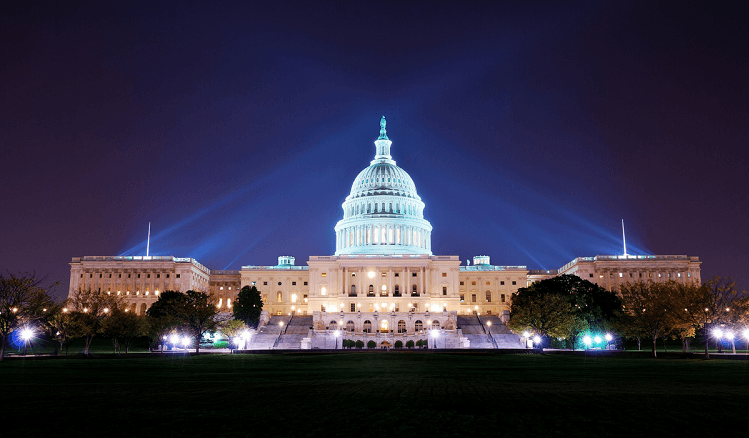Trump Reiterates Call For School Choice

During his first address to a joint chamber of Congress, President Donald Trump called education “the civil rights issue of our time” and again pushed for Congress to pass school choice legislation.
“I am calling upon members of both parties to pass an education bill that funds school choice for disadvantaged youth, including millions of African-American and Latino children. These families should be free to choose the public, private, charter, magnet, religious or home school that is right for them.”
On the campaign trail, Trump made school choice a hallmark of his education policy and the new Secretary of Education, Betsy DeVos, is a longtime champion of school choice.
One of President Trump’s guests was Denisha Merriweather, a former recipient of the Florida tax-credit scholarship program, who has since become a school choice advocate.
“As a young girl, Denisha struggled in school and failed third grade twice. But then she was able to enroll in a private center for learning, with the help of a tax credit scholarship program. Today, she is the first in her family to graduate, not just from high school, but from college. Later this year she will get her masters degree in social work.
“We want all children to be able to break the cycle of poverty just like Denisha.”
While education is largely a state issue, several important school choice proposals have been introduced in Congress. Many of these same bills have been introduced in the past, but stand a much better chance of passage today.
This includes:
- The CHOICE Act: Sen. Tim Scott (R-SC) has reintroduced theCreating Hope and Opportunity for Individuals and Communities through Education Act, which would provide school choice options for students with disabilities and military families. The proposal would enable states that already run disability school choice programs, as Mississippi does, to expand educational options for children with special needs with federal dollars. It would also create a pilot program under the Department of Defense on at least five bases to provide scholarships of $8,000-$12,000to students in military families.
- Title I Portability: Rep. Luke Messer (R-IN) has reintroduced legislation,the Enhancing Educational Opportunities for All Students Act, which would give states the option to allow $14.5 billion in Title I federal money to follow low-income children to the public or private school of their choice. The proposal would also expand 529 college savings accounts to K-12 education and eliminate the $2,000 cap on Coverdell education savings accounts.
- 529 College Savings Expansion: A proposal from Rep. Patrick McHenry (R-NC) wouldexpand 529 college savings accounts to cover K-12 education. It would also increase the limit on contribution to Coverdell accounts, which can be used for K-12 education expenses, to $12,000.
- Federal Tax Credit: Sen. Marco Rubio (R-FL) has reintroduced legislation that would create a federal tax credit for individuals who contribute to a state tax-credit scholarship program. At the state level, 17 states currently have tax credit scholarship programs. Mississippi would need to create a program to participate in this program.
- Native American Education Opportunity Act: Introduced last year by Sen. John McCain (R-AZ), and very likely to return, this would allow students living on Indian reservations to receive an ESA if their home state has an ESA in place. This includes Mississippi, which currently has eight Bureau of Indian Education schools across three counties in the east-central part of the state.
To stay connected with what is happening in Jackson and up to date with the school choice and education reform movement in Mississippi, Join The Movement today.
